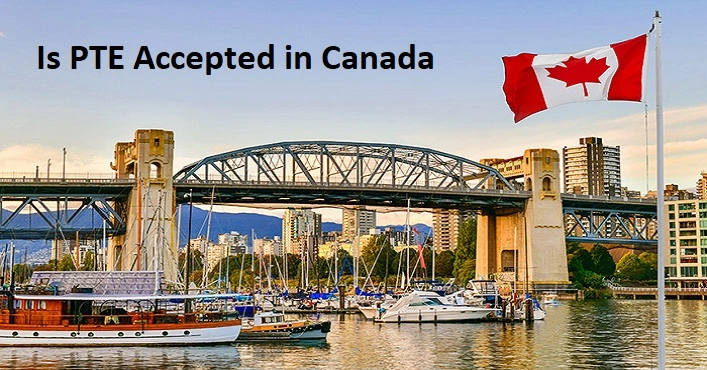Pearson’s Test of English, or PTE, is one of the standardised English proficiency tests across the world. It includes tests on the writing, speaking, listening, and reading skills of the English language. The test-takers get their score within the range of 10-90, where 90 is the highest and 10 is the lowest.
But the question is, if a student wants to study in Canada, can they take the test? Is PTE accepted in Canada? The answer is YES! You can get admission to a Canadian university or college with the help of your PTE score. In this blog, you will learn about the minimum PTE score for Canada and other essential tips regarding this exam.
And, if you need any additional help, you can contact Western Overseas for the necessary guidance on the exam. Our experts will help you prepare for the exam and secure the necessary marks.

Minimum PTE score for Canada
The PTE score requirements vary from one university to another university in Canada. The average PTE score to get a Canada student visa is 60. The score is calculated as the English language proficiency test score. But the final decision to determine the minimum PTE score depends upon the Canadian university authority where you’re applying.
The PTE score is accepted for the undergraduate and postgraduate programs of the universities. Also, remember that different universities have different score requirements for various study programs.
Tips to get a good PTE score for Canada
Let’s see some of the best tips to get a good score in PTE –
- Take mock tests as much as possible. The mock tests will help you to understand the pattern of the PTE test.
- You have to practise these tests with a timer. It will help you to increase your time management capacity.
- Read different books, magazines, and newspapers and note down new words.
- Polish your English speaking skills. So, practice speaking with yourself, record the speech, and listen to it to identify your flaws.
- To improve your writing skills, you need to practise writing every day. Be careful about spelling, punctuation, tense, etc. These will impact your PTE scorecard. So, be careful about these factors.
- You have to answer the questions from the non-native speakers in the PTE exam. So, you need to understand their accents. Thus, you have to improve your listening skills. Listening to podcasts will sharpen your listening skills.
For more tips, contact Western Overseas for dedicated guidance on the PTE exam and score good marks, increasing your chances of securing the visa.
What to do if you don’t get the ideal PTE score for Canada?
PTE and other English proficiency tests are highly challenging. So, if you don’t get a fair result on a first go, don’t get upset. There are some alternative ways to reach closer to the PTE score. Let’s see how you can do it –
- The most suitable option is to retake your PTE. You can re-appear for a PTE just after 5 days of your first PTE exam.
- You will get several universities in Canada that accept low PTE scores. They provide alternative courses with greater value. So, you must try these universities.
- Apart from PTE, you can opt for the alternative English proficiency test – IELTS. The score of IELTS is universally recognised, and you will get plenty of learning opportunities with it. Also, every Canadian university accepts the IELTS score, and this score is accepted for work permits and PR purposes in Canada.
Reasons to study in Canada
Since you are planning to study in Canada, here are some primary reasons for that –
- Canadian colleges and universities have outstanding course structures for degree and diploma courses. Additionally, the degree/diploma from these universities is recognised across the world.
- Their syllabus includes cross-disciplinary studies and promotes critical thinking.
- Canada's education system integrates the latest and most sophisticated technologies. It means you get to access all the latest tools for the job. Therefore, besides strengthening your theoretical knowledge, these universities also improve your practical understanding of the concepts.
- Besides learning, the Government of Canada allows foreign students to work up to 20 hours per week. Also, they can work full-time during their vacation. And they can do it without getting a work permit.
Conclusion
To sum up, now you have got your answer is PTE accepted in Canada or not? PTE analyses your English proficiency level and helps you get admission to the universities/colleges of a foreign country like Canada. The test is challenging, but it’s not impossible to crack it.
